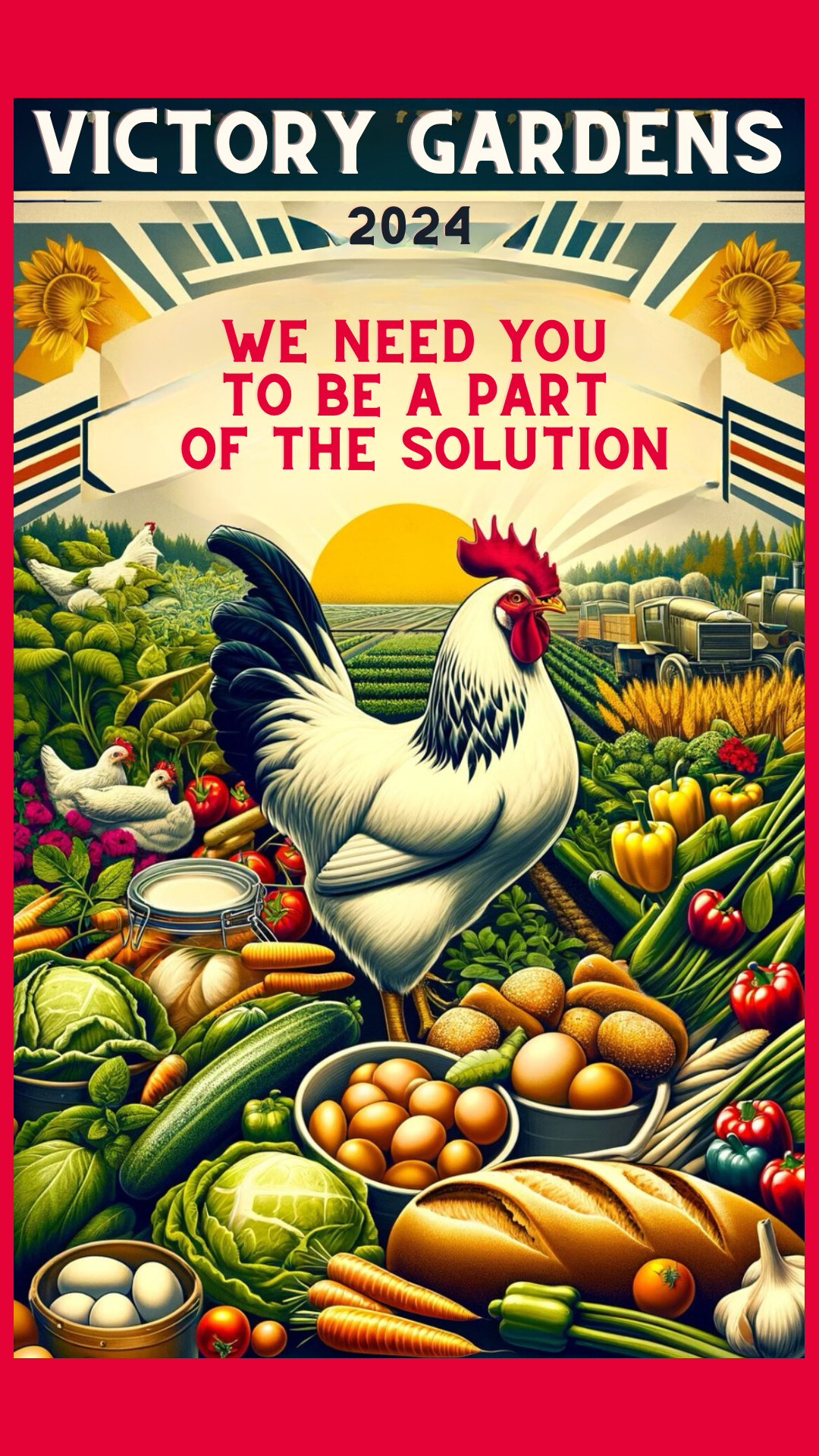During the war years, particularly in World War II, London and many other cities across the UK and the US witnessed a remarkable movement: the rise of victory gardens. These weren’t just gardens; they were powerful symbols of resilience, self-sufficiency, and community spirit. Citizens, in an act of patriotic duty, turned every available patch of land into productive gardens to grow vegetables and fruits. This movement was not only about supplementing the food supply during tough times but also about boosting morale.
Fast forward to the present, and it seems we’ve lost touch with this empowering tradition. The idea of planting a garden or raising chickens is often met with surprise – “Wait, what? You preserve food?” or “Why chickens?”. These reactions highlight a significant shift in our societal norms. We’ve moved away from direct involvement in food production to a more passive role as consumers. But isn’t this a lost opportunity?
Imagine a world where growing your own food and participating in food preservation isn’t an oddity but a norm. By reviving the spirit of victory gardens, we can create a healthier food supply – one that’s fresher, more nutritious, and less dependent on complex supply chains. It’s not just about nostalgia; it’s about practicality and responsibility.
Think about the benefits: less transportation and packaging = kinder to the earth, and the joy of eating something you’ve grown with your own hands.
This truly doesn’t require everyone becoming a full-time farmer. It’s more about each of us seeing it as our responsibility to contribute – even in a small way – to a healthier food system. Consider community gardens in urban spaces, balcony herb pots, backyard vegetable patches, and yes, even a few chickens where possible.
In our fast-paced, technology-driven world, reconnecting with our past—stepping into the “cutting edge of old timey” might be exactly what we need. Let’s not just dream of that day. Let’s start small and learn as we go.

